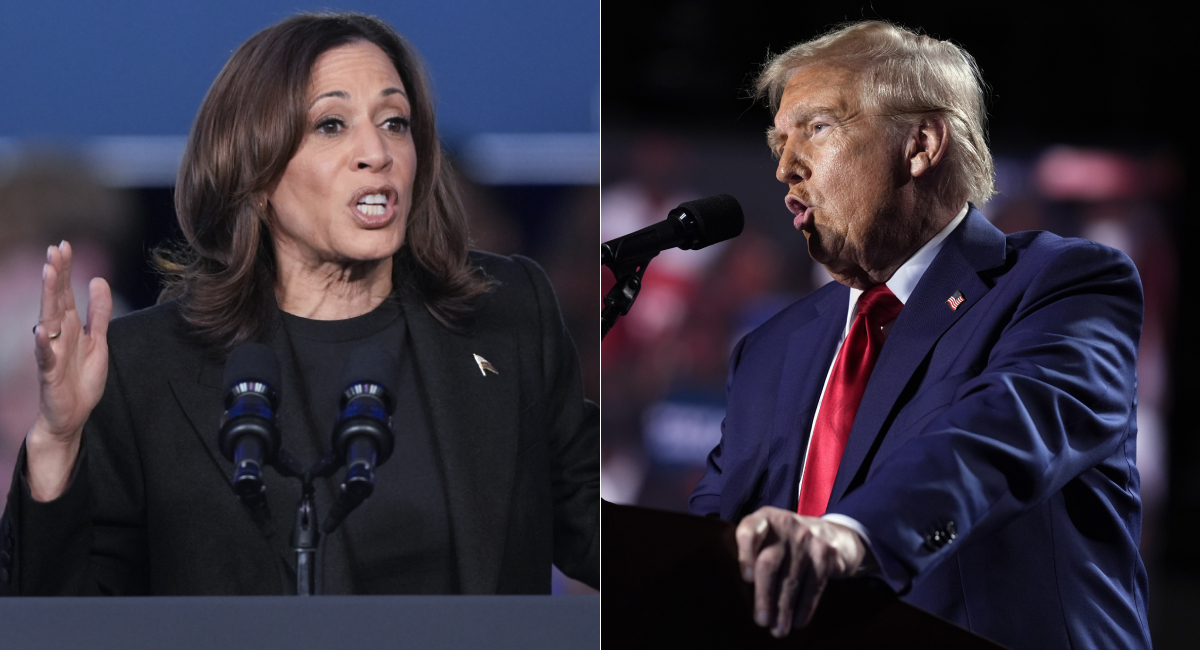As the November 5 election approaches, former President Donald Trump is intensifying his outreach to Arab Americans, leveraging dissatisfaction within the community regarding Washington’s Middle East policies. Traditionally, Arab Americans have leaned Democratic, but frustrations with President Joe Biden’s administration over its support for Israel amidst the ongoing conflict in Gaza and Lebanon present an opening for Trump.
The Trump campaign is particularly focused on Michigan, a key battleground state with a significant Arab and Muslim American population. In the 2020 election, most Arab Americans voted for Biden to prevent Trump—who had implemented a so-called Muslim travel ban—from winning a second term.
However, a recent poll conducted by The Arab News/YouGov revealed that 45 percent of Arab Americans are likely to vote for Trump, compared to 43 percent for his Democratic opponent, Vice President Kamala Harris. Another 4 percent indicated support for third-party candidate Jill Stein.
Harris, who became the Democratic frontrunner in July after Biden withdrew from the race, has reiterated the message that Israel has the right to defend itself. Since the October 7 attack by Hamas that killed 1,200 people, Israeli airstrikes have resulted in the deaths of over 42,000 Palestinians in Gaza, with more than 2,000 casualties reported in Lebanon as Israel continues its military operations.
In Dearborn, Michigan, a hub for Arab Americans, the Trump campaign has established a presence with a team actively canvassing, running ads, and sending text messages to voters. “Trump is making a lot of noise in the Arab community,” says Hussein Dabajeh, a Dearborn resident and billboard company owner. “They’ve worked just about every mobile billboard.”
Republican political action committees have created billboards that feature Harris and Democratic Senate candidate Elissa Slotkin overlaid on an Israeli flag with the message: “The pro-Israel team we can trust.”
In interviews with Arabic-language media, Trump has claimed that the events of October 7 would not have occurred under his administration, though he has generally refrained from detailing his foreign policy plans. “We’re going to have peace in the Middle East,” he told MTV Lebanon during a recent Michigan visit. “Despite all the challenges Lebanon is facing, things will turn out very well. The Lebanese people are going to be very happy in the end.”
During the interview, Trump was joined by Massad Boulos, a Lebanese-American businessman whose son is married to his daughter Tiffany. Boulos has been rallying support for Trump within the Arab-American community.
Speaking to Al Arabiya, Trump remarked, “I have many friends who are Arab, from different countries, but Arab. And I’m very happy about it; they’re smart. They’re very warm people. It’s a shame what’s happening over there.”
The campaign has also opened an office in Hamtramck, a Muslim-majority city in Michigan, where the Democratic mayor, Amer Ghalib, recently endorsed Trump, calling him “a man of principle.”
On Truth Social, Trump expressed that the Middle East would “spend the next four decades going up in flames” if Harris were elected. He criticized her, stating: “Arab Voters are very upset that Comrade Kamala Harris, the Worst Vice President in the History of the United States and a Low IQ individual, is campaigning with ‘dumb as a rock’ War Hawk, Liz Cheney.”
Harris is currently campaigning in key swing states, including Michigan, where she has been joined by Liz Cheney, the former congresswoman whose father was influential in the U.S. wars in Iraq and Afghanistan. Michigan, along with Wisconsin and Pennsylvania, forms part of the Blue Wall, historically pivotal for Democratic victories. Recent national polls indicate a tight race between Harris and Trump in these critical states.





